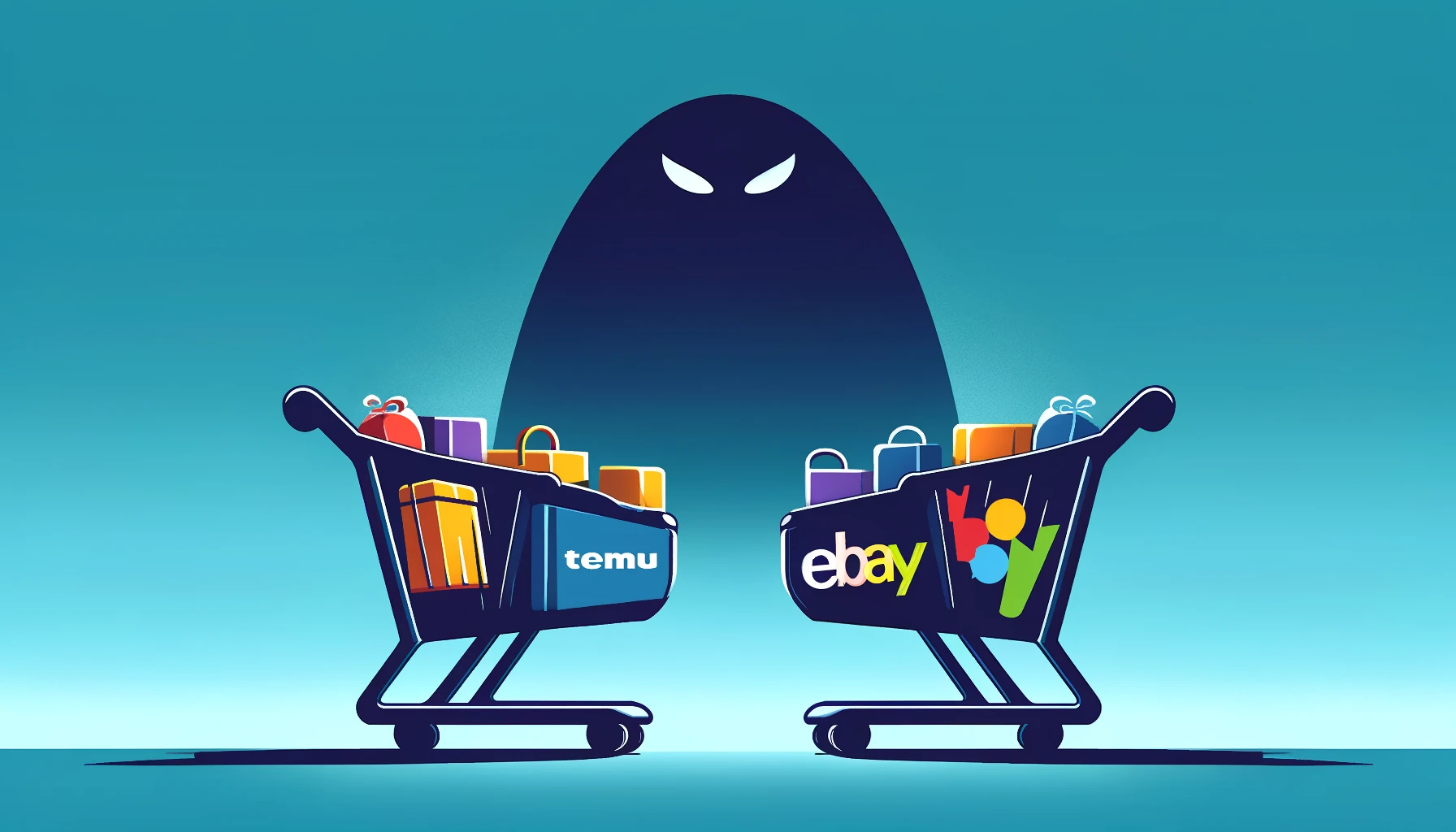
In a surprising shift in the e-commerce landscape, Chinese online shopping platform Temu has begun to outperform eBay in terms of monthly repeat customers, despite being in the U.S. market for less than two years. This newcomer’s rapid ascent highlights significant changes in consumer shopping habits and the increasingly competitive nature of global e-commerce.
A recent survey conducted by London-based online marketing firm Omnisend has illuminated some interesting trends among American online shoppers. The survey, which polled 1,000 consumers, revealed that 34% of respondents made purchases from Temu at least once a month. This figure slightly exceeds the 29% who reported making monthly purchases from eBay, a stalwart in the online marketplace arena for nearly three decades.
However, Amazon.com Inc. continues to dominate the field, with an impressive 76% of respondents shopping there at least monthly. The survey’s findings underscore the shifting dynamics within the e-commerce sector, particularly in the wake of the pandemic-induced changes in consumer behavior.
Temu, a division of PDD Holdings Inc, has aggressively marketed itself to the U.S. audience, employing strategies that include heavy discounting and robust advertising campaigns. Notably, the company has aired two high-profile ads during the Super Bowl with the catchy tagline, “Shop like a billionaire.” Additionally, Temu maintains a strong presence on various social media platforms, further broadening its reach and appeal.
These marketing efforts appear to be paying dividends, as indicated by the survey’s results. “It just shows how Temu’s aggressive marketing – like Super Bowl commercials and social-media campaigns – is paying off,” commented Greg Zakowicz, a senior e-commerce expert at Omnisend. He noted that such strategies are not without risks but acknowledged that Temu seems to have effectively converted many first-time buyers into loyal customers.
| Marketplace | Monthly Repeat Customers (%) | Key Strengths | Key Weaknesses |
|---|---|---|---|
| Amazon | 76 | Wide selection, Prime benefits | Higher prices |
| Temu | 34 | Low prices, aggressive marketing | Product quality, delivery speed |
| eBay | 29 | Variety of goods | Customer engagement |
The post-pandemic economic environment has also played a significant role in altering shopping patterns. A report by EMarketer highlighted that in 2022, less than half of U.S. shopping journeys began on online marketplaces like Amazon, a decline from previous years. Conversely, the proportion of shoppers starting their searches on engines like Google increased, indicating a growing inclination to compare prices across multiple platforms.
This trend presents a valuable opportunity for emerging discounters like Temu, who can attract price-sensitive consumers by offering competitive rates directly from manufacturers. In response to queries about product quality, a Temu spokesperson stated, “We’re encouraged that Temu’s direct-from-factory model is trusted by U.S. consumers for affordable products,” and assured that the company conducts regular quality checks to maintain standards.
While new players like Temu are making significant inroads, established giants like Amazon are not without their challenges. Although Amazon continues to innovate and has been recognized for offering the lowest prices among major U.S. retailers for seven consecutive years, the survey pointed out that pricing remains a major source of dissatisfaction among its customers. This suggests that despite its efforts to provide value and convenience, the financial pressures of the current economic climate are pushing consumers to prioritize cost over speed and convenience.
The rise of Temu in the U.S. e-commerce market signals a broader evolution in consumer expectations and market strategies. As competition intensifies, both new entrants and established firms will need to continually adapt to meet the shifting demands of a cost-conscious, digitally savvy consumer base. With its strategic marketing and pricing, Temu is well-positioned to capitalize on these trends, though it remains to be seen how it will address ongoing challenges related to product quality and delivery times.
Related News:
Featured Image courtesy of DALL-E by ChatGPT
